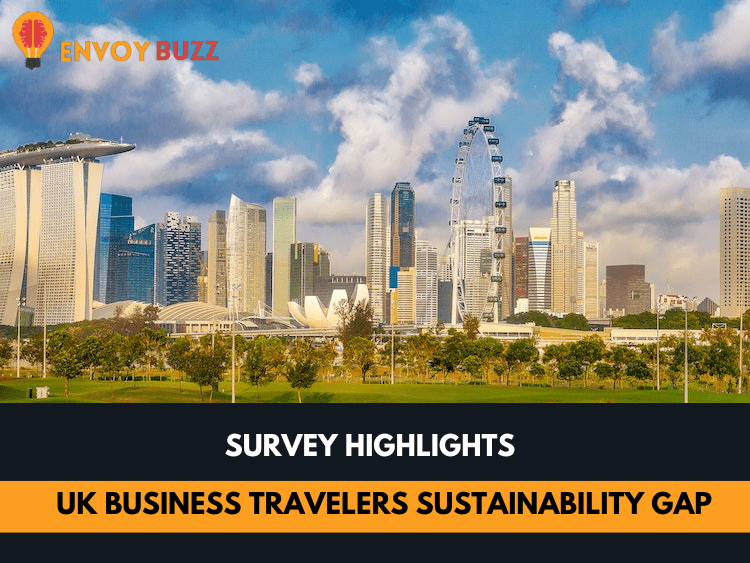According to recent research commissioned by payments expert Emburse, business travellers in the UK put cost and convenience over environmental concerns when making travel arrangements.
According to a study done in May by Censuswide, which polled 1,003 employees and 254 employers, only one in six employees cited sustainability as their top concern when making travel arrangements, significantly below cost (31 %), traveller convenience (27 %) and loyalty and rewards programmes (21 %).
Only 26% of workers stated they would intentionally cut back on travel to lessen their carbon footprint.
However, 71% of workers felt their employer should do more to promote sustainable travel, and 76% indicated they would choose a more eco-friendly form of transportation if there were financial incentives or sustainability initiatives in place.
The survey states that while 71% of organisations already have official sustainability policies or standards in place, 38% of enterprises reported increasing their involvement in sustainability. However, just 37% of these companies really implement these rules when making reservations and approving travel expenses.
In addition, 43% are considering putting initiatives and incentives in place to promote sustainable travel (such as travel budget incentives, bike-to-work programmes, and remote training), while 25% of businesses lack a sustainable travel policy and 6% do not intend to implement one.
Jeroen van Velzen (SVP travel and mobility at Emburse) said:
“It’s promising that more organisations are putting sustainability guidelines and policies into place, but this data shows we still have a long way to go until it becomes a priority,”
He further said:
“Whilst travel managers could strictly enforce their companies’ policies to help achieve carbon goals, this heavy-handed approach risks alienating travelling employees,”
He said:
“Educating travellers about the impact of their trips in easy-to-understand terms – like how many houses could be powered by the energy used on a trip – can lead to much higher levels of compliance. Employers need to provide employees with tools to make smarter decisions and employees need to use that insight to make more environmentally friendly travel plans. We need to move beyond paying lip service to environmental issues and turn good intent into meaningful action,”
Emburse reports that since 2021, when it last performed its sustainability survey, employee demand for sustainable travel incentives has increased by 19%.
Additionally, according to data from 2021, 1 in 9 (11%) employers rated sustainability as a crucial consideration for business travel.
Solution:

Employers must take genuine action rather than just pay lip service to this problem. Higher levels of compliance may result from informing tourists in language they can relate to about how their travels affect the environment. Employers should provide employees with tools and resources to make informed and eco-friendly travel decisions, such as calculating the energy consumption of trips and offering financial incentives for sustainable transportation options.
Additionally, organisations need to strengthen their commitment to sustainability by upholding their current policies and taking into account new initiatives and incentives. For instance, increasing remote training options and establishing travel budget incentives are a few examples. By making these changes, companies may promote a sustainable culture and support efforts being made by the industry as a whole to lower carbon footprints.
For more blogs, Please visit Envoybuzz.

